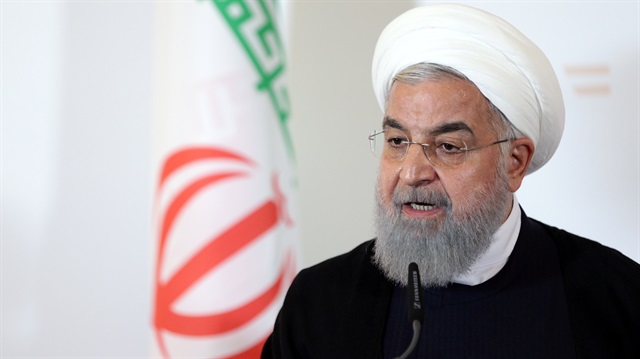
Trump condemned the deal in part because it did not cover Iran's ballistic missile programme and involvement in Middle East conflicts. He reactivated U.S. sanctions, the most all-encompassing measures against Iran, and warned countries to stop importing Iranian oil from Nov. 4 or risk U.S. penalties.
The three major European signatories to the 2015 deal have been searching for ways to salvage it but cautioned Tehran that they may not be able to persuade many major investors not to bolt from business with Iran to avoid U.S. punishment.
Rouhani said during a meeting with Britain's ambassador on Tuesday that after what he called the "illegal" U.S. withdrawal from the nuclear deal, "the ball is in Europe's court now".
He added, "The Islamic Republic has never sought tension in the region and does not want any trouble in global waterways, but it will not easily give up on its rights to export oil.”
Rouhani and some senior military commanders have said Iran could disrupt oil shipments from Gulf states through the Strait of Hormuz if Washington tries to choke off Iranian oil exports.
Reiterating Tehran's official stance, Iranian Navy Commander Rear Admiral Hossein Khanzadi was quoted as saying by Tasnim news agency on Tuesday that the strait would remain open "if Iran's national interests are preserved".
Iran's OPEC governor, Hossein Kazempour Ardebili, told Reuters on Tuesday that Trump was mistaken if he expected Saudi Arabia and other oil producers to compensate for losses of Iranian oil caused by U.S. sanctions.
"It seems President Trump has been taken hostage by Saudi Arabia and a few producers when they claimed they can replace 2.5 million barrels per day of Iranian exports, encouraging him to take action against Iran,” Ardebili said.
"Now they and Russia sell more oil and more expensively. Not even from their incremental production but their stocks."
He said oil prices, which Trump has been pressuring the Organization of the Petroleum Exporting Countries to bring down by raising output, will instead rise unless the United States grants waivers to buyers of Iranian crude.
Iran’s currency plumbed new depths on Monday, dropping past 120,000 rials to the dollar, but Trump's expressed willingness to negotiate with Tehran sparked a minor recovery on Tuesday to 110,000 rials on the unofficial market.
Iranian Vice-President Eshagh Jahangiri said the government and the central bank would unveil a new economic plan by the end of this week to tackle the U.S. sanctions and the rial's fall.
Videos on social media showed hundreds of people rallying in Isfahan in central Iran, and Karaj near Tehran, in protest at high prices caused in part by the rial's devaluation under heightened U.S. pressure.


